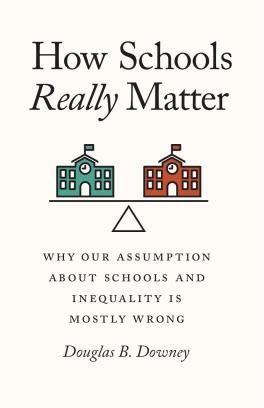Douglas Downey
Professor and Director of Undergraduate Studies
Townshend Hall 126
1885 Neil Ave.
Columbus, OH 43210
Areas of Expertise
- Gender, Class, & Race
- Family
Education
- Ph.D., Indiana University, 1992
Social stratification, family, and technology.

I’m primarily motivated by questions about inequality—who gets what and why? Inequality in the U.S. is historically high and threatens the legitimacy of our social system. If inequality continues to increase at the rate we’ve observed during the last half century, it is likely to produce considerable political strain on our democratic system. One branch of my research considers schools’ role in all of this. I’ve just published a book, How Schools Really Matter, that posits that schools play a more positive role than typically thought and that the core sources of inequality are in our broader policy decisions. I’m also increasingly interested in how technological change is influencing inequality and our social lives more broadly. In what ways do new technologies facilitate greater inequality? How does technology influence our social relationships and our sense of mattering? How does it shape our way of understanding how the world works, our thinking about what constitutes persuasive evidence, and the kinds of authorities we trust?
In a project motivated by this interest in technology, Ben Gibbs (Brigham Young University) and I consider whether children’s face-to-face social skills are declining. Anecdotal evidence claims that kids these days are great at texting but have no clue how to manage a real social interaction. You might think that there would be lots of good social science evidence supporting this claim, but it is remarkably fuzzy. We find no evidence that face-to-face social skills among nationally representative samples of American children have declined over time.
A current project explores the connection between internet expansion and “deaths of despair.”
